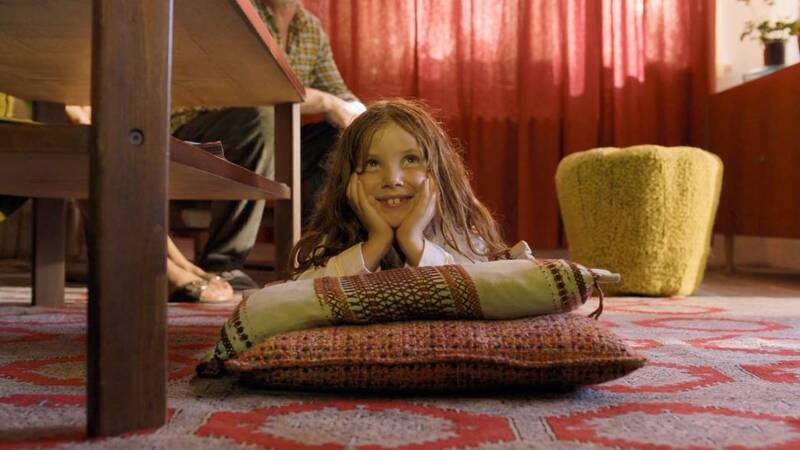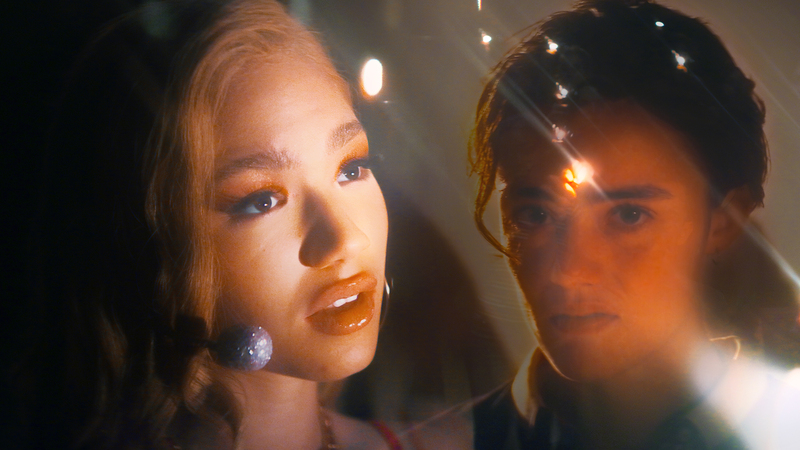
One Summer Day Changes Everything
MOVIE REVIEW
Tiny Lights (Svetýlka)
–
Genre: Drama
Year Released: 2024, 2024
Runtime: 1h 16m
Director(s): Beata Parkanová
Writer(s): Beata Parkanová
Cast: Mia Bankó, Elizaveta Maximová, Veronika Zilková, Martin Finger
Language: Czech with English subtitles
Where to Watch: premiering in North America on Film Movement Plus on July 11, 2025
RAVING REVIEW: Beata Parkanová’s TINY LIGHTS is a quiet triumph in restrained storytelling, bringing deep emotional resonance without ever raising its voice. Centering the entire film around six-year-old Amálka’s perspective, Parkanová doesn't just direct a narrative—she reconstructs a memory, crafting an experience that feels suspended in time. It's a thoughtful meditation on the moment when innocence begins to fade, not from cruelty, but from the subtle complications of adulthood glimpsed before a child is ready.
What sets TINY LIGHTS apart isn’t its story on paper—it’s the gentle, almost impressionistic way it unfolds. Set in 1991 Czechoslovakia, although intentionally stripped of overt period signifiers, the film follows Amálka (played with remarkable realism by newcomer Mia Bankó) over the course of a single summer day. Her world, usually defined by predictability and warmth, is shaken by a rising tension between her parents. It’s not so much that something dramatic happens, but rather that something shifts. That slight change in atmosphere—a change the adults don’t bother to explain—is enough to send emotional ripples through a child who was only expecting a day at the lake.
Rather than lean on melodrama or obvious exposition, Parkanová lets the discomfort creep in organically. A glance, a silence, a closed door—these moments say more than dialogue ever could. The choice to film everything from Amálka’s eye level is a masterstroke. We’re not simply watching her story; we’re inside her mind, her curiosity, her small triumphs and quiet heartbreaks.
Parkanová’s connection to the material deepens the film’s resonance. Her notes reveal how autobiographical this project truly is—from the song Amálka sings with her grandfather to the very storybook her father once read to her. That intimacy radiates throughout the film. You can feel it in the lived-in quality of the house, the softness of the garden, and the way each adult character is layered not with exposition, but history.
Bankó, in her first-ever screen role, delivers something rare: a performance that never feels like acting. She reacts, listens, and exists in each scene with an almost uncanny ease. Parkanová spent a full year working with her before filming began, and that dedication is evident. The result is a child's performance that doesn’t feel guided—it feels lived.
Elizaveta Maximová plays the mother with a restrained frustration that hints at years of compromise. Her scenes crackle with repressed emotion. Martin Finger and Veronika Žilková, as Amálka’s grandparents, are grounding presences. Finger has a particularly affecting scene under the table with Amálka, gently singing a tune that will stick with audiences far beyond the credits. Žilková’s performance as the grandmother adds a necessary edge, as she becomes both protector and product of a generational mindset that often keeps things “in the family.”
Although the plot centers on the parents’ impending separation, the film never shifts away from Amálka’s vantage point. We’re kept in the dark as much as she is, catching only fragments of adult conversations, half-formed sentences, and changed plans. There’s a scene involving spilled milk and a cat that at first seems minor, but by the end feels like a microcosm of the larger strain—a mother’s intolerance, a father’s passivity, and a child caught in the middle, unsure of what just happened but certain that something is wrong.
While the film's tone is often light, almost breezy, that airiness hides a surprisingly complex core. Parkanová trusts her audience to pick up on nuance and understands the intelligence children possess, even if they lack the vocabulary to articulate it. It’s that trust—in both her viewer and her young protagonist—that gives TINY LIGHTS its glow.
This isn't a story of trauma or abuse. It's the story of learning, slowly and without instruction, that adults are fallible. That the people who care for you can also be flawed. And that love doesn’t always come packaged in permanence. The final scenes hint at this growing awareness in Amálka, who may not fully grasp what’s changing, but begins to carry the weight of it nonetheless.
TINY LIGHTS succeeds by staying rooted in the personal, the subtle, and the human. It doesn’t shout its ideas; it whispers them through a cracked door or the rustling of leaves on a warm summer walk. This is a film about perception, memory, and the invisible moment when a child begins to notice that the world is more complicated than it first appears. A delicate and tender work that illuminates the quiet heartbreaks of growing up.
Please visit https://linktr.ee/overlyhonestr for more reviews.
You can follow me on Letterboxd, Instagram, Twitter, and YouTube. My social media accounts can also be found on most platforms by searching for 'Overly Honest Reviews'.
I’m always happy to hear from my readers; please don't hesitate to say hello or send me any questions about movies.
[photo courtesy of FILM MOVEMENT+]
DISCLAIMER:
At Overly Honest Movie Reviews, we value honesty and transparency. Occasionally, we receive complimentary items for review, including DVDs, Blu-rays, CDs, Vinyl Records, Books, and more. We assure you that these arrangements do not influence our reviews, as we are committed to providing unbiased and sincere evaluations. We aim to help you make informed entertainment choices regardless of our relationship with distributors or producers.
Amazon Affiliate Links:
Additionally, this site contains Amazon affiliate links. If you purchase through these links, we may receive a commission. This affiliate arrangement does not affect our commitment to honest reviews and helps support our site. We appreciate your trust and support in navigating these links.



Average Rating